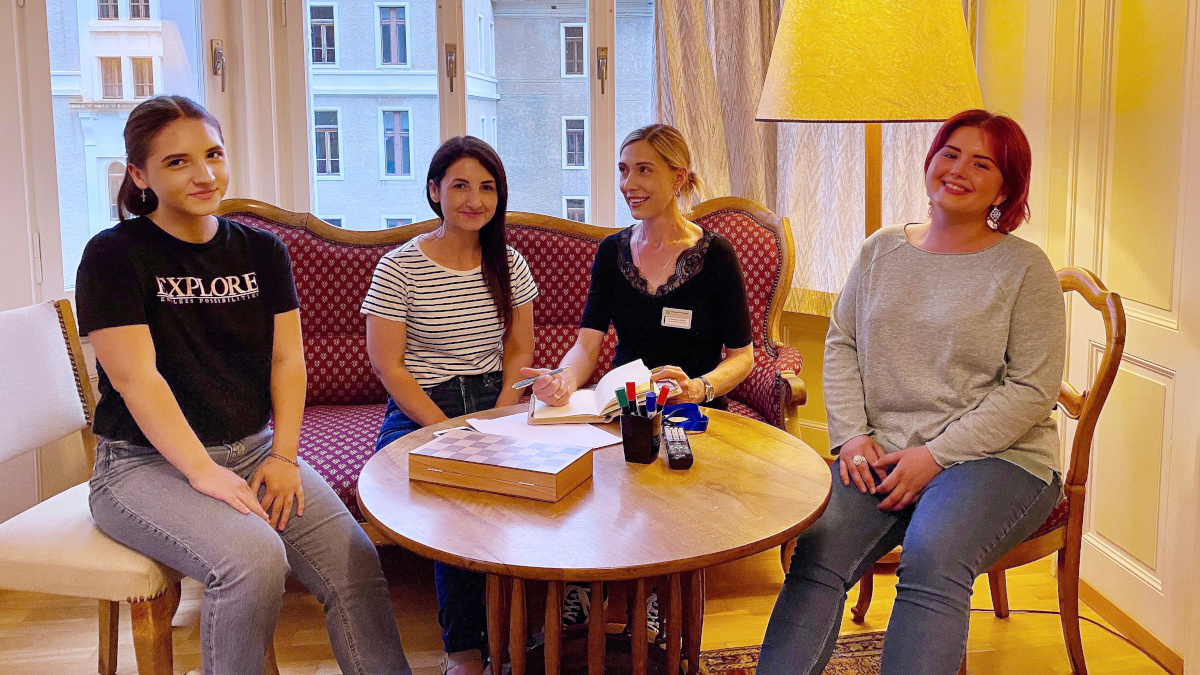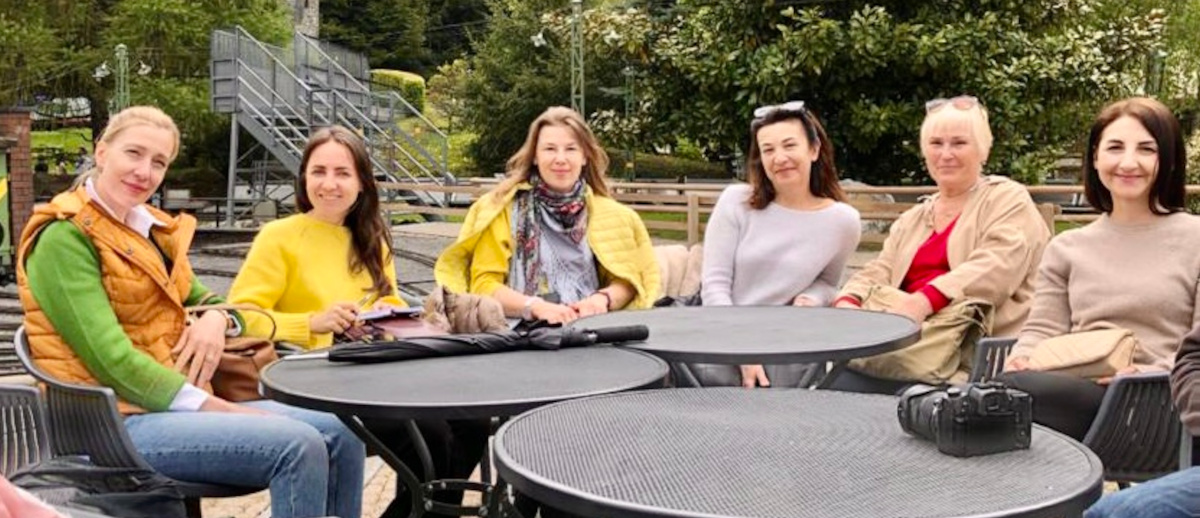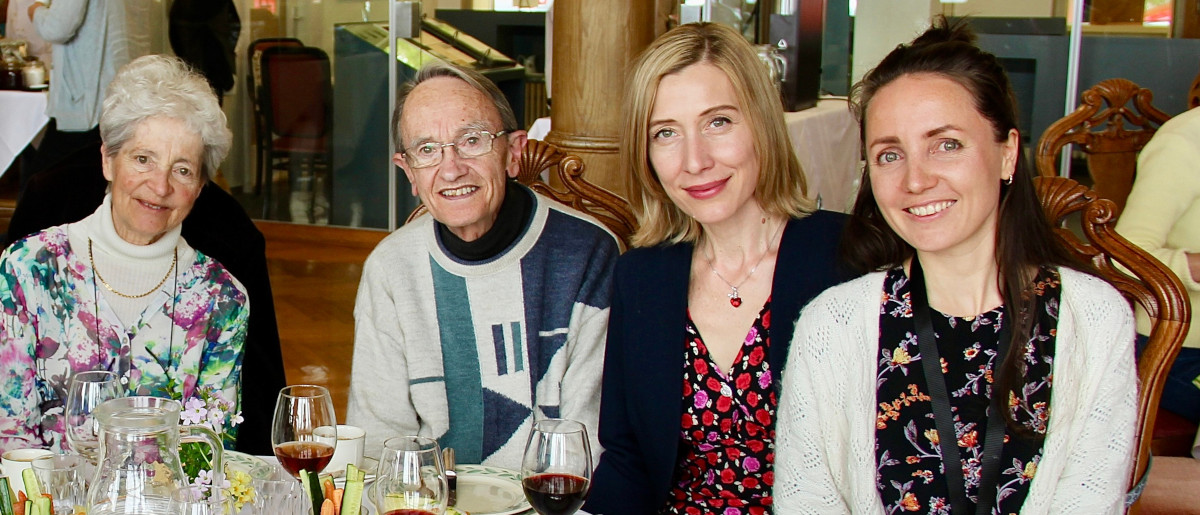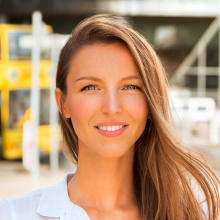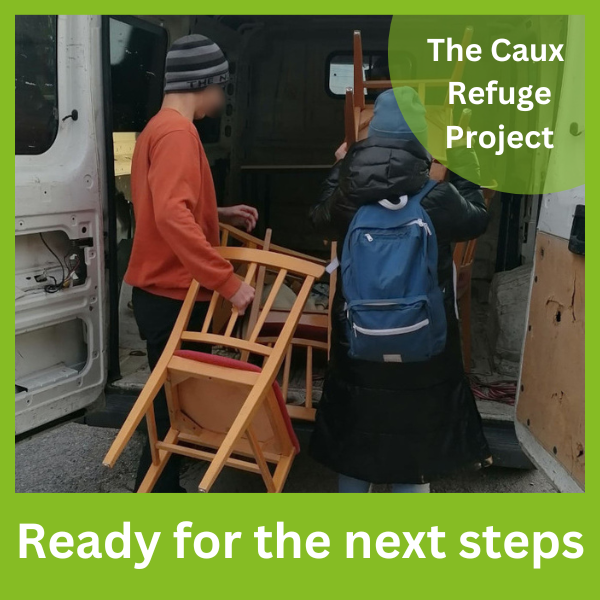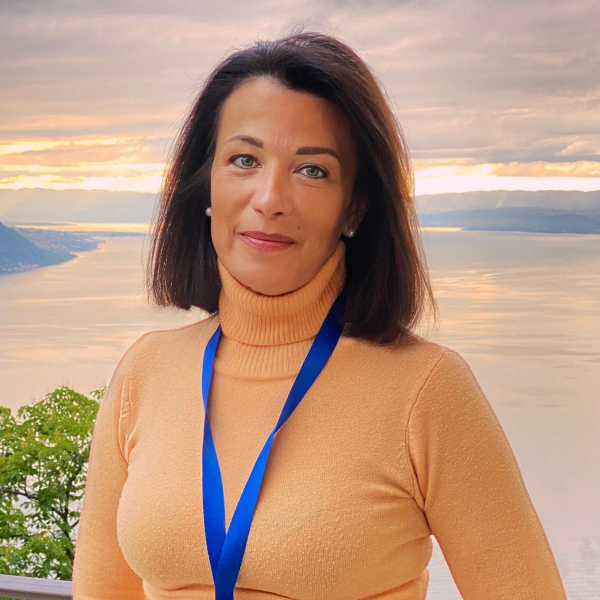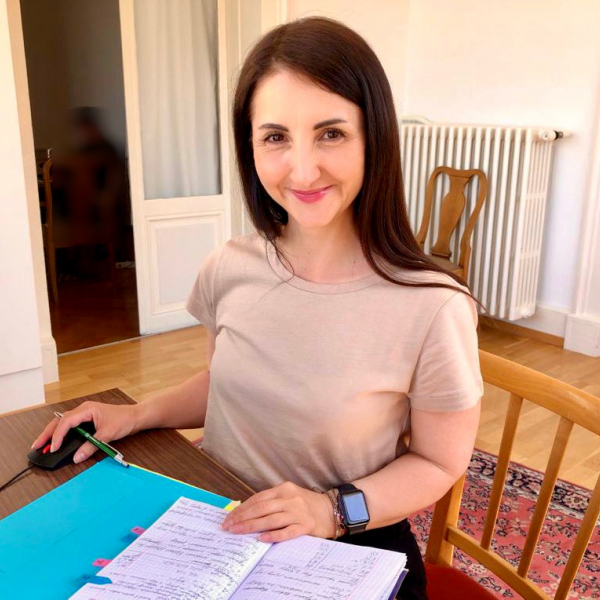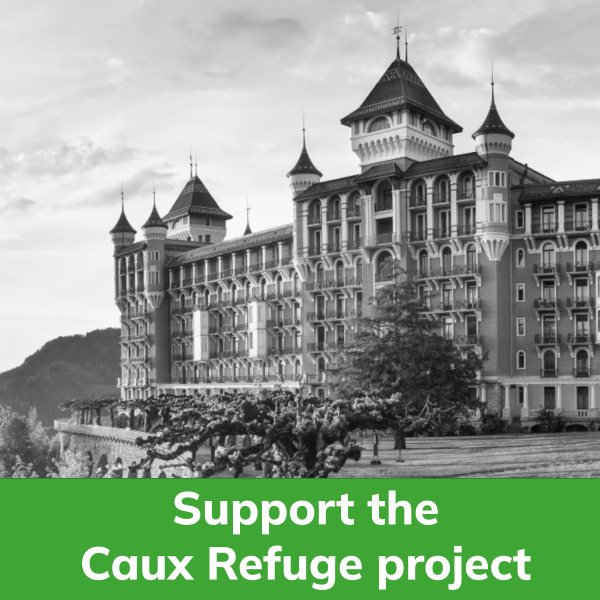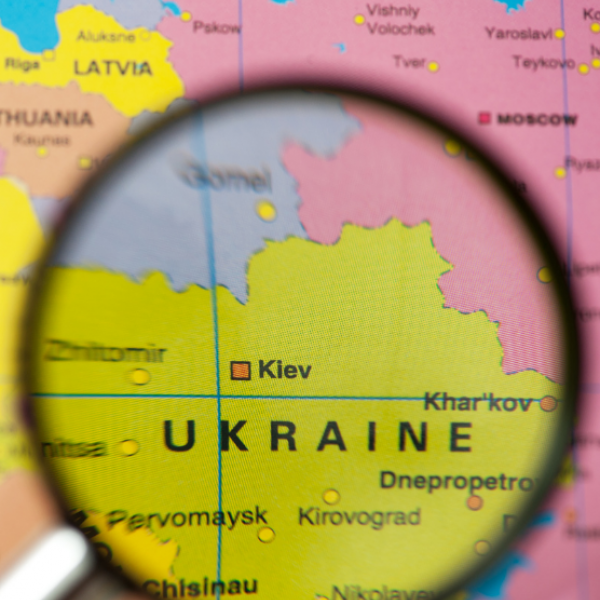'If it wasn’t already my job, I would probably be doing it anyway.'
A Caux Refuge interview by Anastasia Slyvinska
01/06/2022
This article is the fifth in a series of interviews with people living or working at the Caux Refuge, based at the Caux Refuge.
_______________________________________________________________________________________________________________________
Maria Raffin is originally from Moldova, but has been living in Switzerland for 17 years, two of which in the village of Caux. A neighbour to the Caux Palace, she very quickly stepped in to support the Caux Refuge project and help those who have been coming to stay there since the beginning of the war in Ukraine. First a volunteer, she has been working as a liaison officer for the Caux Refuge since April, sharing the position with her colleague, Ekaterina Gross.
How did you first hear about the Caux Refugee project and how did you meet the first people who came?
Maria: I heard about it through our neighbour, Amandine. She added me to an online group called “Solidarity” where people from the village started to gather essentials and prepare the Villa Maria for those who had to leave their homes due to the war in Ukraine. Alina was the first person I met at the Villa Maria. I had come with two bags of chocolates, food and essentials. Then I met Tetiana. Amandine told me that Tetiana had come with her three children and later Olena and her stepdaughter Masha arrived.
So you started to help people as a volunteer?
Maria: Yes, at first it wasn’t an official job. I didn’t even think that helping people the way I helped could be considered a job, so it was a complete surprise for me when I was offered a part-time position with IofC Switzerland as a liaision officer at the Caux Refuge project. For me, helping people in such difficult circumstances is absolutely normal, as nobody knows what situation we could be in tomorrow. My husband Alessandro has helped a lot. He supported me from day one and has started so many initiatives. Without his kindness and encouragement it would have been very difficult for me to embark on this journey, so I’m truly thankful to him.
Is there some personal motivation that stands behind your commitment?
Maria: Well, I’ve gone through situations in the past where I needed help. And only a few people helped me at the time because others didn’t really know what was going on. I was too shy to ask for support. When you’re in a foreign country and you don’t know anyone, it is obviously not easy to ask for help because you’re a stranger to everyone. But when someone helps you at such a time - we have a saying, “Your wings grow”. It means that you are being empowered and you gain motivation and hope. This really means a lot. I have never forgotten those moments when strangers helped me. I think we should all help each other in difficult situations.
So for you it’s a sort of giving back to others?
Maria: In some way, yes… I’ve had a difficult life since I was little. When you need help and nobody is around - that’s hard. So when someone, even just one single person, is being kind and supportive you feel that not everything is bad forever. With time you realize that you don’t need a lot to feel good and fulfilled. It’s very important to have good people around you, food, shelter, but the most important among all is health. Everything else can and will get better.
And what touched or impressed you the most during these few months at the Caux Refuge?
Maria: It’s those absolutely innocent people who had everything before the war…a home, a family, health, work and everything else they needed. Suddenly they had to leave it all behind, leave everything they loved and go somewhere, not even knowing where to or who was waiting for them. They didn’t even know if they would make it through their journey. Obviously, it’s a very hard situation when you don’t know where you’re going and what awaits you there. On top of that, you feel you can’t be demanding, you can’t even expect anything. It’s hard to ask for help. In this case they even had to ask for very basic essential things, like where to sleep at night or what to eat.
Do you also work with children and elderly people at the Caux Refuge?
Maria: Yes, indeed! It’s one thing when people are adults, but we have kids and elderly people who had to flee and are now staying at the Villa Maria. People like Anna and Liudmyla who have worked their entire lives to have a pension and live in peace. And then they had to leave, right when they thought it was finally time for them to take a break and take care of themselves… Can you imagine that? To me, that’s heartbreaking. But I think all of them are lucky to have found a safe place here in Caux.
And what is the most important thing for your work? What are your top priorities?
Maria: It’s helping people to adapt to new circumstances, all while making them feel at home. I’m not sure I can help them with everything. I can’t stop this war, but whatever is within my power I will do it. There is no doubt about that. Even if it wasn't already my job, I would probably be doing the same thing and take as much time as possible to help these people.
And how did you find this job and decided to make this a career choice?
Maria: I didn’t know there was a job opening, so I was surprised when I got a job proposal. But I immediately agreed because I like the fact that I learn a lot every single day. First of all, I learn a lot about people and their relationships. It’s very interesting for me to see how IofC is helping people and I’m curious to find out more. It all has a sense of meaning to me.
What have been the most meaningful and beautiful moments during your work at the Caux Refuge?
Maria: It’s almost impossible to name just a few. When I think of my experience at the Villa Maria I consider every moment and conversation ultimately meaningful. Even if I would sort through them and lay out all the different moments on a shelf I wouldn’t be able to decide. Each and every moment here is beautiful to me, starting from the introduction, our first dinner at our family home, celebrating Easter… Right now we are planning to do a barbecue. There are many more moments to come and I look forward to experiencing them together. So I am very thankful to Amandine, my volunteering neighbours in Caux and IofC who have all made this project possible.
About the author
Anastasia Slyvinska is a journalist from Kyiv, Ukraine. She has worked as a TV host, a foreign reporter and a manager for media outlets in Ukraine and abroad. Having worked at both Ukrainian and Canadian Parliaments she combines her media expertise with her political sciences background, holding a MA in Political Science. Anastasia has been part of the IofC community since 2014 when she first participated at the conference Just Governance for Human Security. She is currently living in Lausanne, Switzerland.
YOU CAN HELP!
As our own sources of funding are running out, we need your help to support the Caux Refuge project financially. We need CHF 20,000 to ensure that the group can be hosted until the end of 2022. We will use these funds to finance food aid and other costs related to the group's stay at the Villa Maria in Caux.
We thank you for your support. Please pledge your support here and specify “Caux Refuge” when making your contribution. If you have any proposals and questions, please get in touch with us.

Please note that the opinions expressed in these articles are those of the interviewees and not do not necessarily reflect the opinion of the interviewer and Initiatives of Change Switzerland.
Photo top: Anastasia Slyvinska
